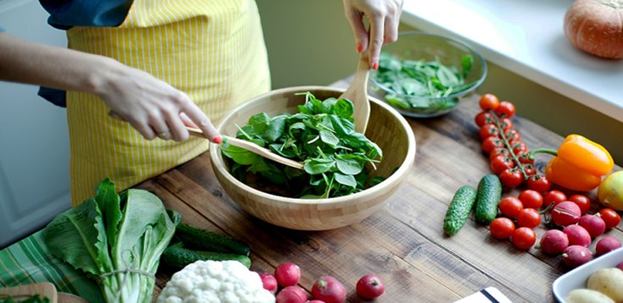South Africa is facing a silent cancer crisis. Within the next five years, annual diagnoses are projected to reach 120,000 cases, double the number recorded in 2019. Among women, breast cancer remains the most common, with a lifetime risk of 1 in 27.
As October marks both Breast Cancer Awareness Month and World Food Day (16 October), it’s the perfect time to explore one of the most overlooked factors in cancer prevention and management – nutrition. Research shows that what we eat can play a direct role in our cancer risk, with overweight and obesity contributing to as many as 50% of cancer-related deaths.
The importance of nutrition is often spoken about, but now, more than ever, the health benefits of it or the implications of unhealthy eating habits are reflected in threatening health challenges. For people living with cancer, and their caregivers, understanding the basics of food safety and nutrition isn’t just about maintaining strength; it can be a matter of health.
“From choosing immune-supporting ingredients to avoiding foodborne illness, knowing what’s on your plate can make a life-changing difference,” says Megan Pentz-Kluyts, Nutrition and Dietetics Consultant on behalf of CANSA and B-Well.
A well-balanced, thoughtfully curated diet isn’t a luxury or a passing trend
This is one of the strongest defences we have against cancer. The right mix of foods supports a healthy weight, strengthens the immune system, and reduces inflammation, key factors in lowering cancer risk and aiding recovery. For those living with cancer, mindful eating can also bring comfort and a sense of control during an uncertain journey.
Consulting a registered dietitian can make an enormous difference, and they can guide you towards nutrient-rich, immune-supporting foods and help you make informed choices about what to put in your shopping basket. For those who don’t have access to a professional, organisations such as the Cancer Association of South Africa (CANSA) offer excellent educational resources to help you make empowered, evidence-based decisions about your diet.
For the discerning eater, every small change adds up
Even familiar meals can be adapted to support better health and recovery. For example, apple cinnamon oats, a comforting breakfast, can be modified for those experiencing mouth sores, a dry mouth, or constipation by boosting fibre, protein, and omega-3s through canola oil, eggs, or walnuts.
Essential fats, such as omega-3 fatty acids, are critical for maintaining overall health
But beyond their well-known benefits, emerging research suggests that these polyunsaturated fats could influence long-term cancer risk. Omega-3 fatty acids, in particular, are recognised for their powerful anti-inflammatory properties, which may help suppress the development of cancer cells. Even more compelling is the research pointing to a higher omega-3 to omega-6 ratio – a dietary balance that could be key to reducing the risk of certain cancers.
It’s about making small, meaningful switches, and choosing canola seed oil and products utilising canola seed oil, for instance, is a simple step that can make a big difference. B-Well Canola seed oil is endorsed by CANSA and is naturally high in omega-3 fatty acids – nutrients linked to lowering the risk of certain cancers.
While creating a healthy meal plan is essential, food safety is equally important, especially for those with compromised immune systems. Every year, nearly one in ten people worldwide falls ill after eating contaminated food. This highlights a critical truth: even the most nutritious meal can be harmful if not handled safely.
Proper food preparation and storage
This protects you and those around you from foodborne illnesses caused by harmful bacteria, parasites, or viruses that thrive in unsafe conditions. Contaminated food can lead to food poisoning, a preventable but sometimes severe condition that affects everyone, including those without underlying health concerns.
Safe food practices such as washing hands and surfaces, separating raw and cooked foods, cooking at the right temperatures, and refrigerating promptly are simple yet powerful ways to safeguard your health. Because when it comes to wellness, what we eat matters, but how we handle it matters just as much.
As we commemorate Breast Cancer Awareness Month and World Food Safety Day, let’s remember that what we eat truly matters, especially in the fight against cancer. Every ingredient we choose can either support our health or work against it. Be a conscientious shopper, select foods that nourish and protect your body, and prioritise safe food handling because wellness starts not just with what’s on your plate.
To learn more about cancer-nutritious recipes, you can find our Caring Beyond the Plate guide here for tips and tricks to guide you along the journey.




